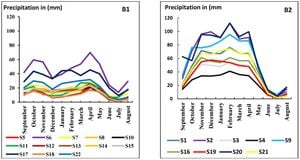Ukrainian President Volodymyr Zelensky has expressed his readiness to resign for the sake of peace and Ukraine's accession to NATO, amid the recent staggering surge of Russian drone attacks on Ukrainian territory. During a press conference marking nearly three years of conflict with Russia, Zelensky articulated his willingness to step down from the presidency if it would pave the way for NATO membership. “If they want me to leave this position, I’m ready to do it, and I can exchange this position for NATO membership for Ukraine,” he said, focusing on Ukraine's security rather than his presidential ambitions, which he described as non-existent.
On February 18, significant developments took place as U.S. and Russian officials held high-level talks in Saudi Arabia aimed at addressing the war's resolution. U.S. Secretary of State Marco Rubio engaged with Russian Foreign Minister Sergey Lavrov, reinforcing the growing international efforts to mediate peace. The meeting's location was notable; Saudi Arabia has not only maintained good relations with both countries but has also emerged as a neutral ground for diplomatic discussions historically hosted elsewhere.
This conference came on the heels of one of the largest drone attacks by Russia on Ukraine, with the Ukrainian Air Force reporting 267 drones sent at once, marking the most extensive assault since the war began. Despite achieving considerable success with 138 out of the 267 drones intercepted, the assault resulted in significant damage to Ukraine's infrastructure and the loss of at least three lives.
On the eve of the third anniversary of the war, international leaders, including EU representatives, are expected to visit Kyiv to express unwavering support for Ukraine amid these devastating attacks. Zelensky emphasized NATO membership as one of the main topics for discussion during these talks with European leaders, expressing hope for pivotal changes to arise from them. He lamented, “I cannot say what will come out of it, but I hope this will be a turning point.”
Zelensky also addressed concerns over the remarks made by former U.S. President Donald Trump who referred to him as not being elected but acting like a dictator. He noted, “I don’t feel offended, but real dictators would be upset. What matters now is the security of Ukraine, not my dreams of being president for ten years.” This reflects Zelensky’s unwavering focus on stabilizing the situation for his country above political positioning.
The recent rocket attacks resulted not only in physical infrastructure damage but also underscored the long-term consequences of the prolonged conflict as Ukrainians continue to count casualties and strive for normalcy amid chaos. The U.S. and allies have ramped up military support for Ukraine, raising hopes for effective defense against such assaults. Following the drone attacks, Zelensky called on the West for enhanced assistance to facilitate long-term peace.
Notably, Zelensky’s remarks come during not just one but several significant meetings orchestrated internationally with the intent of advancing discussions on peace. Some analysts have positioned this diplomatic initiative against the backdrop of Trump's recent rise to power, speculating whether his administration would adopt more aggressive or conciliatory tactics toward Russia.
Recent perspectives include strategies proposed by various policymakers urging comprehensive dialogues structured around the premise of advancing Ukraine's military capabilities, thereby fostering improved negotiation clout. Among proposals were extreme pressure tactics aimed at compelling Russia to agree to terms beneficial for Ukraine’s sovereignty.
Research from the Center for European Policy Analysis emphasized strategies such as providing unconditional support for Ukraine to not only raise its military standing but also compel negotiations for peace. This perspective advocates for continuing the sanctions and isolations of Russia economically to induce compliance with international laws.
Conversely, voices from the German Marshall Fund indicate the need for Biden’s administration to take charge of negotiations, emphasizing the importance of reaching out to Putin from a position of strength, allowing the U.S. to set the framework for the discussions.
Despite advantages of alternative negotiating venues, the situation remains complicated due to the absence of Ukrainian officials at recent discussions about the future of peace, raising concerns over U.S. and Russia potentially steering decisions without Ukrainian input.
Beyond immediate military concerns, the long-term economic ramifications of the war indicate the necessity for cooperative global recovery strategies. Analysts stress the growing interdependence of economies across borders residual to the war, pushing for renewed dialogues addressing potential future economic collaborations.
Moving forward, the focus remains on pragmatic dialogues seeking to reconcile conflicting aims as Zelensky persists with emphasis on maintaining Ukraine's security, boundaries, and prospect of stable governance. The outcome of upcoming diplomatic efforts, particularly the response from U.S. leadership under renewed Trump administration, remains pivotal as to whether peace can finally be realized.



